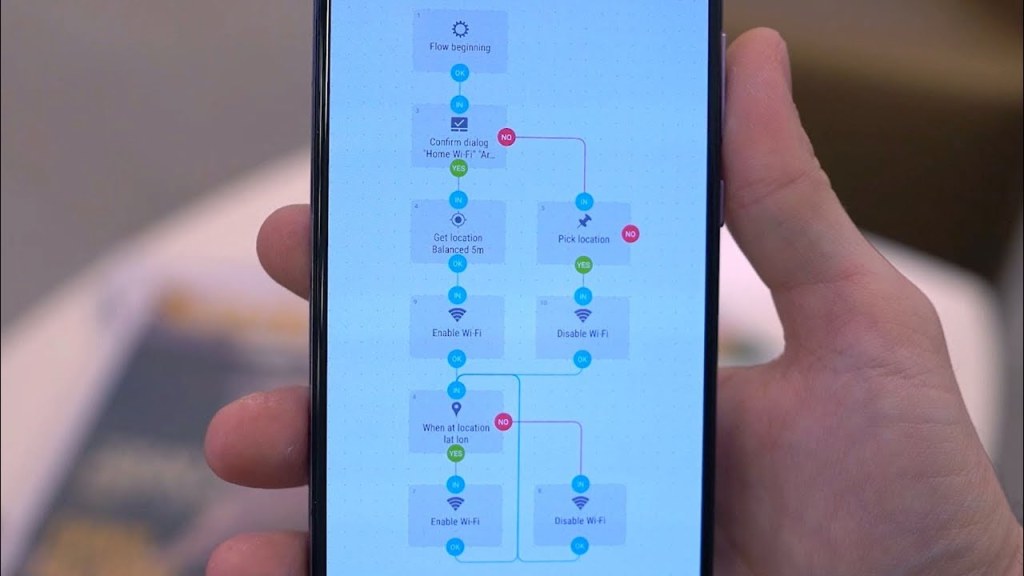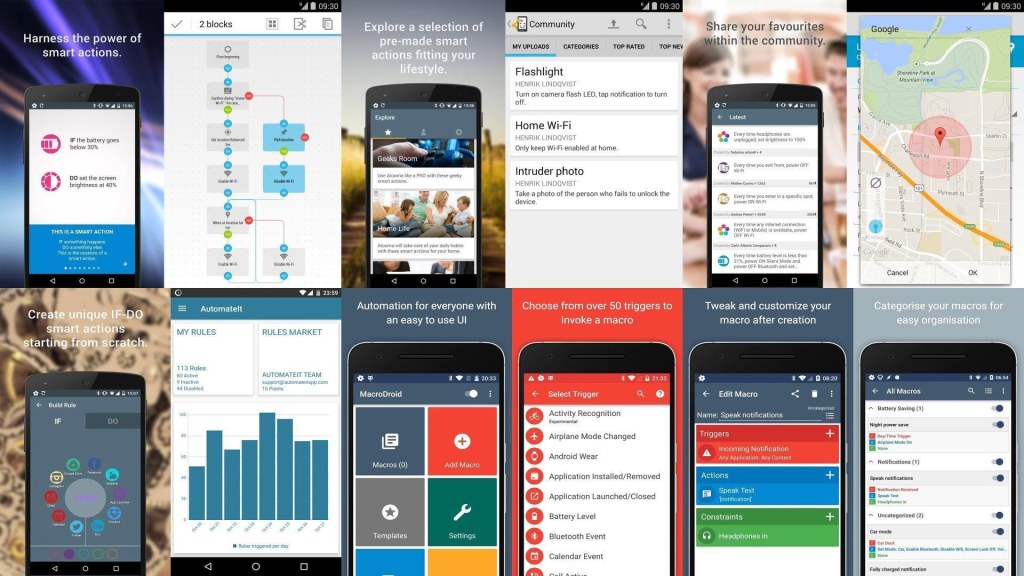Master Your Android Apps Automation: Streamline Your Workflow With Cutting-Edge Tools
Android Apps Automation
Introduction
Dear Readers,
2 Picture Gallery: Master Your Android Apps Automation: Streamline Your Workflow With Cutting-Edge Tools
Welcome to this informative article about Android apps automation! In today’s digital era, mobile applications play a crucial role in our daily lives. From communication to entertainment, we heavily rely on apps to streamline our tasks and enhance our productivity. However, managing and operating these apps manually can be time-consuming and tedious. This is where Android apps automation comes to the rescue. In this article, we will explore the world of Android apps automation, its benefits, drawbacks, and how it revolutionizes the way we interact with our smartphones and tablets.

Image Source: ytimg.com
So, let’s dive in and discover the fascinating realm of Android apps automation!
What is Android Apps Automation?
🤖 Android apps automation refers to the process of automating various tasks and operations within mobile applications running on the Android operating system. With the help of automation tools and frameworks, developers and users can streamline repetitive actions, simplify complex workflows, and enhance the overall user experience.
🔧 Automating Android apps involves scripting or programming actions to be performed automatically, eliminating the need for manual intervention. It allows for efficient testing, debugging, and monitoring of applications, ensuring their smooth functioning and consistent performance.

Image Source: primeinspiration.com
📱 Android apps automation can be applied to a wide range of tasks, including UI testing, data synchronization, content updates, notifications, background processes, and much more. It empowers developers and users to save time, increase productivity, and improve the overall quality and reliability of their Android applications.
Who Benefits from Android Apps Automation?
👨💻 Developers: Android apps automation simplifies the development process by automating testing, debugging, and deployment tasks. It enables developers to identify and fix issues quickly, leading to faster app development cycles and enhanced code quality.
👥 Users: Android apps automation benefits users by automating repetitive tasks, such as sending notifications, backing up data, and scheduling actions. It saves time and effort, allowing users to focus on more important activities and enjoy a seamless mobile experience.
🏢 Enterprises: Android apps automation is particularly valuable for enterprises. It enables businesses to automate internal processes, increase operational efficiency, and enhance employee productivity. It can also facilitate the integration of Android applications with other systems and technologies used within an organization.
When to Implement Android Apps Automation?
⏰ Android apps automation can be implemented at various stages of the application lifecycle. It is beneficial during the development phase for automating testing, deployment, and continuous integration processes. It can also be employed post-release to automate updates, user feedback collection, and performance monitoring.
🚀 Furthermore, Android apps automation can be utilized whenever there is a need to automate repetitive tasks or streamline complex workflows within an application. Whether it is for personal use or enterprise requirements, automation can significantly enhance efficiency and user experience.
Where Can Android Apps Automation Be Applied?
📱 Android apps automation can be applied across various industries and use cases. It is commonly used in e-commerce for automating order processing, inventory management, and customer support. In the healthcare sector, it can automate patient record updates, appointment reminders, and medication management. Educational apps can benefit from automation by automating grading, course reminders, and personalized learning experiences.
🌐 Additionally, Android apps automation can be employed in social media management, banking services, transportation, travel planning, and many other domains. Its versatility makes it a valuable tool in almost any application that requires efficient task management and process automation.
Why Should You Consider Android Apps Automation?
⏲️ Time-Saving: Automating tasks within Android apps saves time by eliminating the need for manual intervention. This allows users and developers to focus on more critical activities, accelerating overall productivity.
💪 Enhanced Efficiency: By automating repetitive tasks, Android apps automation improves efficiency and reduces the risk of human error. It ensures consistent and accurate execution of actions, enhancing the user experience.
🔍 Improved Testing: Automation tools enable thorough testing of Android applications, ensuring their reliability and stability. Automated testing helps identify and fix bugs, enhancing the overall quality of the app.
🌟 Streamlined Workflows: Android apps automation simplifies complex workflows by automating multiple actions into a single automated process. It improves operational efficiency and reduces the cognitive load on users.
💼 Cost Savings: Automating tasks within Android apps can lead to cost savings, especially for businesses. It reduces the need for manual labor, improves resource allocation, and minimizes operational expenses.
How to Implement Android Apps Automation?
📚 To implement Android apps automation, developers can utilize various tools and frameworks available in the market. These tools provide features such as UI automation, scripting, integration with testing frameworks, and compatibility with different versions of the Android operating system.
🔧 Some popular automation tools for Android apps include Appium, Espresso, UI Automator, and Robot Framework. These tools offer a range of capabilities, allowing developers to choose the one that best suits their requirements and technical expertise.
💡 Additionally, developers can refer to official Android documentation, online tutorials, and community forums to learn more about Android apps automation and best practices for implementation.
Advantages and Disadvantages of Android Apps Automation
👍 Advantages:
Improved efficiency and productivity
Time savings through task automation
Enhanced user experience
Reduced human error
Cost savings for businesses
👎 Disadvantages:
Initial setup and learning curve for automation tools
Automation limitations for certain complex tasks
Potential reliability issues if not implemented correctly
Dependency on third-party tools and frameworks
Compatibility challenges with different Android OS versions
Frequently Asked Questions (FAQ)
Q1: Can all Android apps be automated?
A1: While most Android apps can be automated, there might be limitations for certain complex tasks or applications with intricate security measures.
Q2: Is Android apps automation suitable for personal use?
A2: Yes, Android apps automation can be beneficial for personal use by automating repetitive tasks and enhancing the overall mobile experience.
Q3: Do I need programming skills to implement Android apps automation?
A3: Some automation tools provide graphical user interfaces, making it possible to implement automation without extensive programming knowledge. However, programming skills can be advantageous for advanced automation scenarios.
Q4: Are there any risks associated with Android apps automation?
A4: While automation can enhance efficiency, there is a risk of over-automation, resulting in loss of human touch and customization. It is important to strike a balance between automation and user preferences.
Q5: Can Android apps automation replace manual testing completely?
A5: While automation testing is efficient, it should be complemented with manual testing to ensure comprehensive evaluation of an Android application.
Conclusion
In conclusion, Android apps automation is a powerful tool that enables developers and users to simplify tasks, save time, and enhance the overall user experience. By automating repetitive actions within Android applications, users can enjoy seamless mobile experiences, while developers can improve efficiency and code quality. However, it is essential to consider the advantages and disadvantages of automation and choose the right tools and frameworks for implementation. So, embrace the potential of Android apps automation and unlock a world of possibilities!
Final Remarks
Dear Readers,
Thank you for joining us on this journey into the realm of Android apps automation. We hope that this article has provided you with valuable insights and knowledge about the benefits, implementation, and considerations of Android apps automation. As technology continues to evolve, automation will play a crucial role in shaping the future of mobile applications.
Remember, when implementing Android apps automation, it is important to carefully assess your requirements, choose the right tools, and stay updated with the latest trends and best practices. Harness the power of automation, and witness the transformative impact it can have on your Android applications.
Wishing you success in your Android apps automation endeavors!
This post topic: Android Apps


